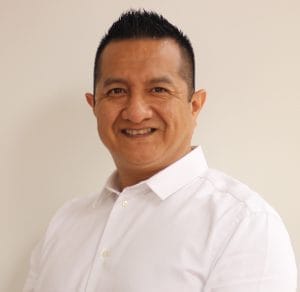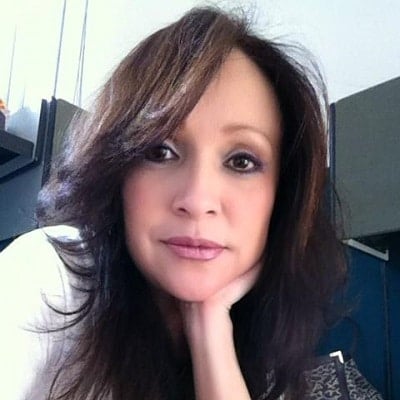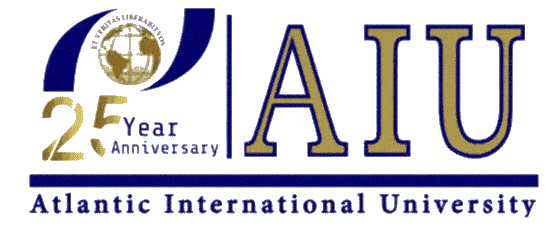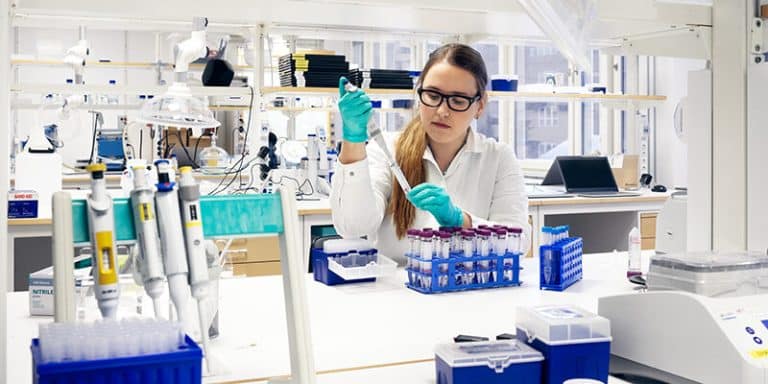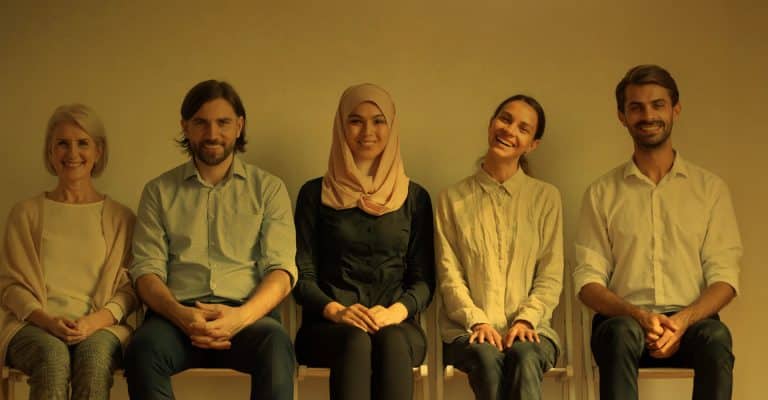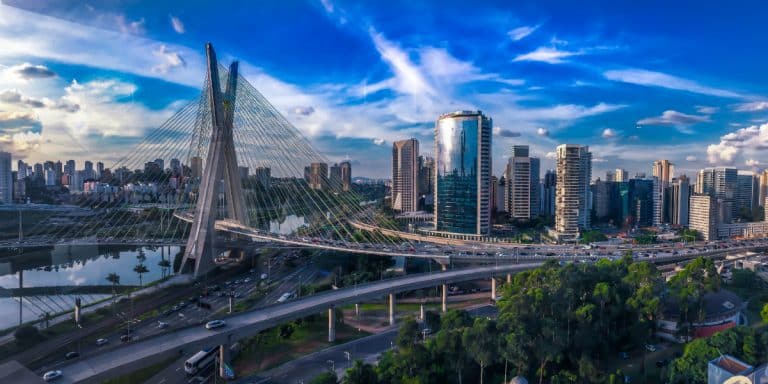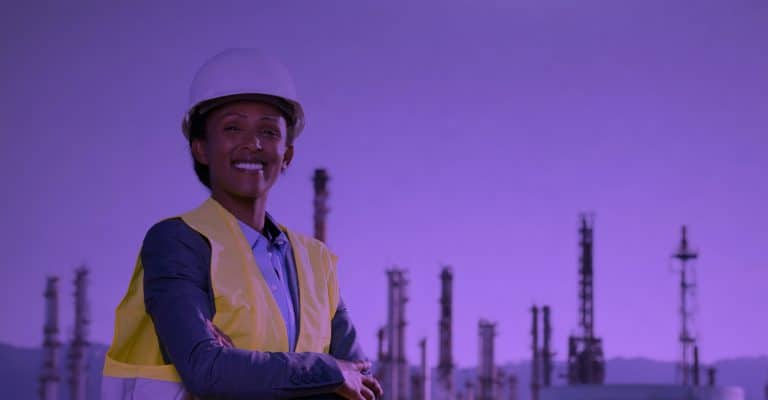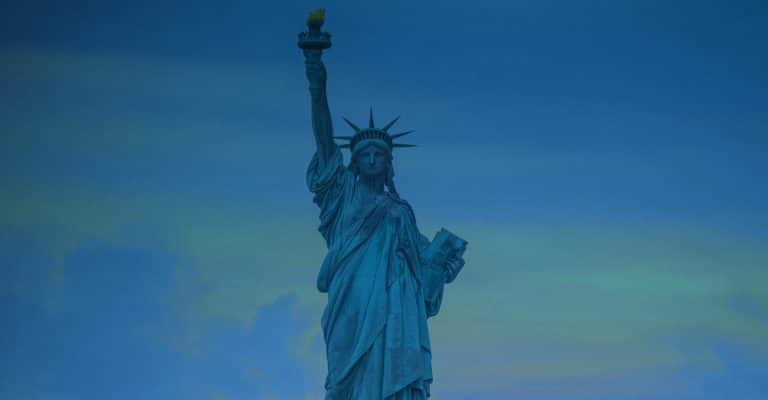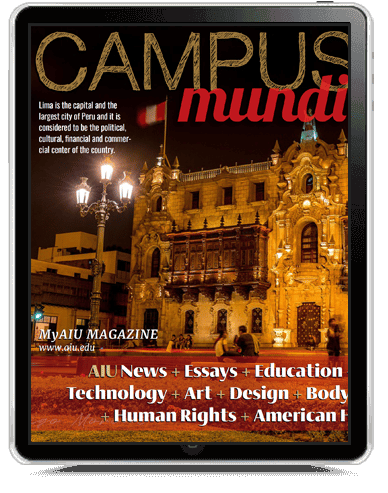

April 2022 Edition!
AIU News + Essays + Education + Culture + Science + Technology + Art + Design + Body + Mind + Environment + Human Rights + Animal Rights + Project Management + About AIU
Thesis defence
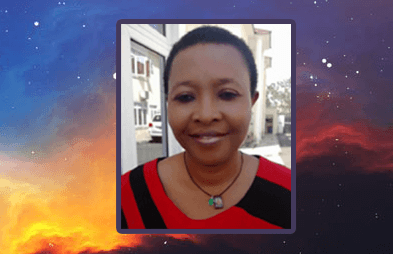
FEBRUARY 24, 2022. Atlantic International University is delighted to share the Thesis Defense of one of our students, Sylvia Chibuike, from Nigeria, which was graded with an A. The thesis was titled, “Assessment of the impacts of Covid-19 lockdown on sexual violence against the adolescent children to accelerate prevention and speak-out culture in Nigeria.” Abstract: The study on the assessment of the impacts of COVID-19 lockdown on sexual violence against the adolescent children to accelerate prevention and speak-out culture in Ondo State was conducted to document 1) the prevalence rate of all forms of sexual harassment against the adolescent children during the year 2020 COVID-19 lockdown exercise, 2) identify barriers against speaking-out and seeking for justice, 3) demystify who the perpetrators are to the survivors, 4) evaluate the actions taken by the survivors; and 5) evaluate the outcomes of the actions taken. Data collection methods used in the study were mixed methods which involved faceto- face interviews to ascertain responses from the service providers, Focused Group Discussion, and structured questionnaires administered to 291 secondary school students selected from six different schools to establish responses from participants. Information collected from these instruments was collated and analyzed with a table, simple percentage, mean score, and charts. The results showed that there is an information gap, as most of the respondents are not informed about their Rights to justice as per actions to take and the authorities to report to when sexually harassed, hence low speak out rate and high rate of unreported cases. Sylvia Chibuike completed a Doctorate Program in Gender and Development Studies at Atlantic International University.
Participation in Conference
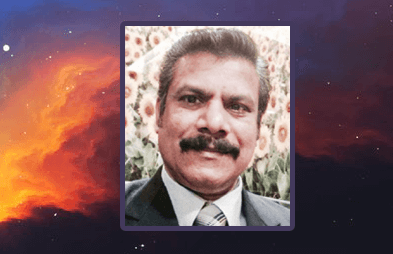
FEBRUARY 22, 2022. The Review Committee for the Twentythird International Conference on Knowledge, Culture, and Change in Organizations, has accepted Dr. Siva Mahendran to participate in an international conference hosted by the University of Auckland, New Zealand. His presentation proposal “Coaching And Mentoring For Workplace Learning” was approved. The conference will be held on Jan 19, 2023 – Jan 20, 2023 at The University of Auckland, Auckland, New Zealand. The annual conference is an integral component of the Organization Studies Research Network. Founded in 1993, Organization Studies Research Network comes together around a common concern for, and a shared interest to explore, new possibilities in knowledge, culture and change management, within the broader context of the nature and future of organizations and their impact on modern society. You can find regularly updated information about the conference on their website: https://organization-studies. com/2023-conference
Thesis defense

MARCH 3, 2022. AIU is delighted to share the Thesis Defense of one of our students, Irene Ansah, from New York, USA, which was graded with an A. Irene is aiming at becoming a licensed clinical psychologist who will be providing services to all age groups across the world. She also plans to use the knowledge and experience gained in her program to further human rights and the 17 Goals for a Sustainable World by the United Nations by providing services through diagnoses, treatment, and interventions to resolve mental health issues in communities in several countries including African. This will improve health and education, reduce inequality, and spur economic growth. Abstract: This comprehensive paper is the integration of all that this writer have learned in her past education and life experience. The final thesis offers a unique and innovative benefit to the cultural and intellectual heritage of humankind. It entails several cases reports, therapeutic interventions and identification and description of theories that influence … Irene Ansah completed a Doctorate Program in Clinical Psychology at Atlantic International University.
Graduated with Distinction

María José Fernández Bruno
Bachelor of Psychology
Psychology
Seramuka Ildephonse
Doctor of Healthcare Administration
Healthcare Administration
Meilí Huang Cedeño
Bachelor of International Relations
International Relations
DISTINCTION
David Bermudez Rosado
Doctor of Business Administration
Business Administration
DISTINCTION
Seramuka Ildephonse
Doctor of Healthcare Administration
Healthcare Administration
DISTINCTION
Ibrahim Abdulai Sawaneh
Doctor of Science Computer Science
FIRST INTERNATIONAL MULTIDISCIPLINARY SYMPOSIUM Reengineering, Innovation & Educational Industry
Knowledge areas
1. Educational and business multidisciplinary internationalization network.
2. Innovation and educational development.
3. Entrepreneurship of new educational technologies.
4. Educational and social reengineering.
5. Education and awareness of a culture of peace.
May 3 – 8, 2022
Ixtapa, Zihuatanejo, México. Duration: 6 days. Modality: face-to-face. General registration: 1000 mex pesos / 50 usd Student registration: 350 mex pesos / 17.50 usd The cost of registration is a small recovery fee More information Tel. 521 55 8254•4028 Dr. Gloria Hekker spumudaamerica@gmail.com Facebook: Spmuda América
Education is the priority of a nation
FIRST INTERNATIONAL MULTIDISCIPLINARY SYMPOSIUM Reengineering, Innovation & Educational Industry
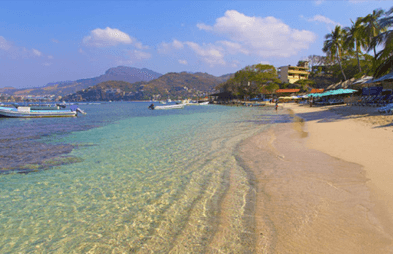
1. Educational and business multidisciplinary internationalization network.
2. Innovation and educational development.
3. Entrepreneurship of new educational technologies.
4. Educational and social reengineering.
5. Education and awareness of a culture of peace.
May 3 – 8, 2022
Ixtapa, Zihuatanejo, México. Duration: 6 days. Modality: face-to-face. General registration: 1000 mex pesos / 50 usd Student registration: 350 mex pesos / 17.50 usd The cost of registration is a small recovery fee More information Tel. 521 55 8254•4028 Dr. Gloria Hekker spumudaamerica@gmail.com Facebook: Spmuda América
Education is the priority of a nation

Doctor of Philosop hy
Computer Science
Canada
Amilcar Demetrio Carrasco Rodriguez
Master of Information Technology
Cybersecurity
Dominican Republic
Wilfredo Castaneda Salinas
Doctor of Education
Education
El Salvador
Laurence Norman Neufville
Doctor of Science
Geoinformation Technology
Jamaica
George Stivie Kenneth Willow
Doctor of Business Administration
Business Administration
Malawi
John-George Okwudiafor
Master of Economics
Transport Economics
Nigeria
Seramuka Ildephonse
Doctor of Healthcare Administration
Healthcare Administration
Rwanda
Mélida R. Chavarría R.
Bachelor of Science
Psychological Counseling
Switzerland
Byaruhanga Stephen Rwaheru
Doctor of Science
Sustainable Energy Engineering
Uganda
Victor Oluwole Omosule
Doctor of Business Administration
Healthcare Management
US A
Sonal Vishal Pawar
Doctor of Philosop hy
Business Management
Canada
Carlos Alberto Adams Marcial
Bachelor of Business Administration
Business Administration
Dominican Republic
Nathaniel Ebo Nsarko
Doctor of Develop ment Communication
Development Communication
Ghana
Ricardo Alexander Baccas
Doctor of Philosop hy
Mathematics
Jamaica
Oscar Anguiano Castro
Doctor of Science
Architecture
Mexico
Marwan Haruna Abdulkarim
Doctor of Philosop hy
Environmental Sustainability
Nigeria
Ibrahim Abdulai Sawaneh
Doctor of Science
Computer Science
Sierra Leone
Afadhali Taibu Afadhali
Master of Finance
Finance
Tanzania
Bladimir Alcivar Reinoso Chipantiza
Doctor of Arts
Human Rights
US A
Kimberly Esthela Wood Salazar
Bachelor of Science
Psychology
US A
Bachelor of International Relations
International Relations
China
María del Carmen Reyes Leocadio
Doctor of Education
Education
Dominican Republic
Enoch Relwende
Bachelor of Arts
Arts
Ghana
Vinnett Malcolm
Doctor of Business Management
Business Management
Jamaica
Gerard Atabong Fossung
Doctor of Philosop hy
Computer Engineering
Netherlands
Marcos Tulio Londoño Alvarez
Doctor of Private Legal Studies
Civil Legal Studies
Panama
Sarah Lindy Maluleke
Doctor of Business Administration
Business Administration
South Africa
Sevda Yapici
Bachelor of Arts
Business Administration
Türkiye
Fongyi Lordson Muno
Bachelor of Science
Computer Engineering
US A
Stephany Garcia Montoya
Bachelor of Science
Nutrition
Colombia
Edwin de Jesús Joaquín Núñez
Bachelor of Marketing
Inbo und and Outbo und Marketing
Dominican Republic
Michael Asamoah Arthur
Certificate of Science
Mechanical Engineering
Ghana
Brigitte Katshiete Mbuisi Eale
Doctor of Science
Maternal and Child Health
Kenya
Adenuga Adeleke Francis
Doctor of Education
Education
Nigeria
Necitas C. Lojo
Doctor of Science
Nutrition
Philipp ines
Bin Wang
Bachelor of Education
Education
South Korea
Cemile Aslı Üstünkaya
Doctor of Business Administration
Business Administration
Türkiye
Tanechia Anderson
Bachelor of Management
Management
US A
Find More Graduates

Testimonials
FIND MORE TESTIMONIALS FROM A I U STUDENTS HERE: https://wp24.aiu.edu/Testimonials.aspx
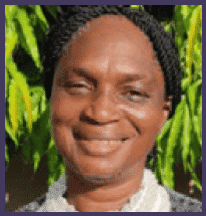
Mercy Eberechukwu Opara
Doctor of Education
December 16, 2021
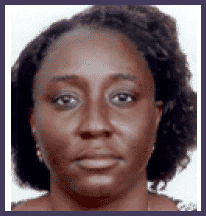
Stella Erebor
Doctor of Business Administration
December 23, 2021

Bernard Cyril Percy Kallee
Bachelor of Business Administration
January 24, 2022
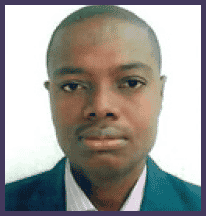
Stephen Gowon John-Oti
Doctor of Forensic Accounting
January 27, 2022
Managerial economics
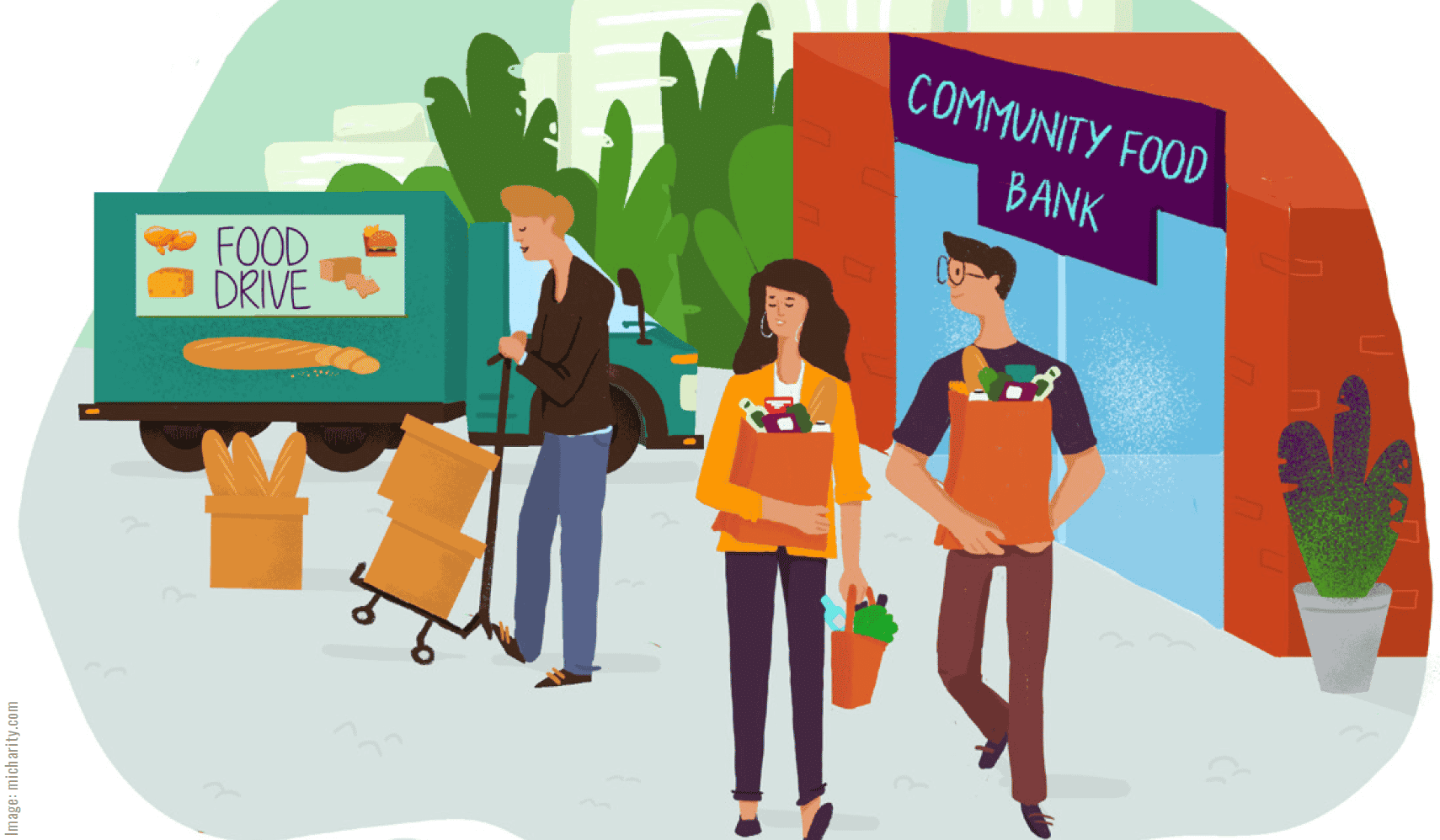
Introduction Managerial Economics is not only valuable to managers of the Fortune 500 companies but it is also valuable to managers of non-for-profits organizations. Managerial economics is valuable to a manager of a food bank who must choose the best means to distribute food to the needy. It is also valuable to a coordinator of a shelter for the homeless whose primary goal is to help the highest possible number of the homeless given a very limited budget. Managerial economics provides important insights into every area of the business and nonbusiness world we live in, including household decision-making.
Manager. A manager is an individual who directs resources to achieve a given goal. A manager can be an individual who directs the efforts of other individuals including those who delegate/assign tasks within a firm, family or a club. A manager is also an individual who purchase inputs to be used in the manufacturing of the outputs (goods and services). A manager can also be seen as an individual that is in charge of making other decisions like product quality and price.
Economics. Economics is the science of making decisions in the presence of scarce resources (anything used to produce goods and services). Decisions are very important because scarcity implies that by making one choice, you give up on another choice(s). Economic decisions involve the allocation of the scarce resources and it is the role of the manager to allocate the scarce resources so as to meet the manager’s goal.
Managerial Economics. It is the study of how to direct the scarce resources in the manner that most efficiently achieves the managerial goal. Managerial economics is a broad field as it describes the methods that are useful for directing everything from the resources of a household to maximize a household welfare, to the resources of a company to maximize the company profits. The key in making good decisions is to know what information that is needed to make an informed decision and to collect and process the data for the information. Managerial economics is a branch of economics involving the application of economic methods in the managerial decision-making process. Managerial economics aims to provide a framework for decision making which are directed to maximize the profits and outcomes of a company. —Wikipedia
Effective management in Managerial Economics Effective management must have the following principles: 1. Identify the goals and the constraints. In making sound decisions, the first step is to have a well-defined goal because achieving a different goal entails making different decisions. For example, when the goal of a food bank is to distribute food to the needy people in urban areas, its decision and optimal distribution network will be different from its decision and the optimal distribution network it will use to distribute food to the needy inner-city residents.
Constraints are an artifact of scarcity and constraints make it very difficult for a manager to achieve goals such as maximizing of profits or increasing the firm’s market share. Constraints include the available technology and the price of the inputs used in manufacturing. 2. Recognize the nature and Importance of profits. Maximizing profits or the firm’s value is the overall goal of majority of firms. Profits can either be Accounting profits (which are the sum total amount of money taken in from sales that is total revenue) and Economic profits (the difference between the total revenue and the total opportunity cost of manufacturing the firm’s good or services). The opportunity cost of using a resources include both the accounting/ explicit cost of that resource and the implicit cost of giving up the best alternative. The opportunity cost of manufacturing a good or service is generally high the accounting cost. 3. Understand incentives. Incentives affect how the resources are used and how hard workers work. The changes in the profits provide an incentive to resource holders to alter their use of the resources. To distinguish between the world business envrionment as it is and the way you wish it were is the first step in constructive incentives.
4. Understand markets. There are the two sides to every transaction in a market in that for every buyer of goods, there is a corresponding seller. The ability of a manager in a firm to meet performance objectives will depend on the extent to which the company product is affected by these sources of rivalry. Consumer–producer rivalry, which occurs because of the competing interest of consumers and the produces, consumers made attempt to locate/negotiate low prices while producers make attempt to negotiate high prices; consumer rivalry which arises because of the economic doctrine of scarcity, it reduces the negotiating power of the consumers in the market place; producer– producer rivalry, which occurs when the multiple sellers of a product compete in the marketplace. 5. Recognize the time value of money. It is important that a manager of a firm recognize that $1 today is worth more than the $1 received in the future because the opportunity cost of receiving the $1 in the future is the forgone interest that could be earned were $1 received today. The opportunity cost also reflects the time value of money. 6. Use marginal analysis. It is one of the most important managerial tools and it states that the optimal managerial decisions involve comparing.
Conclusion Managerial economies applies the most important theories and concepts from the two closely related areas of economies (microeconomics and industrial organizations) to create systematic, logical way of analyzing business practices and the tactics designed to get the best profit as well as formulating the strategies for protecting and sustaining these profits in the long run. Microeconomics is the study and the analysis of the individual behavior of consumers, business corporations, workers and owners of resources, industries and the markets of goods and services. Microeconomics develops a number of foundation concept and the optimization technique that explain the every business decisions managers must routinely making in day to day running of a business. The decisions includes deciding how much of the various productive inputs to buy in order to produce the chosen output level at lowest total cost, choosing the profit maximizing production level, allocating production between two or more production plants located in different places, choosing how much the firm spends on advertising and setting the profit maximizing prices for the goods the company sells.
Learning for society
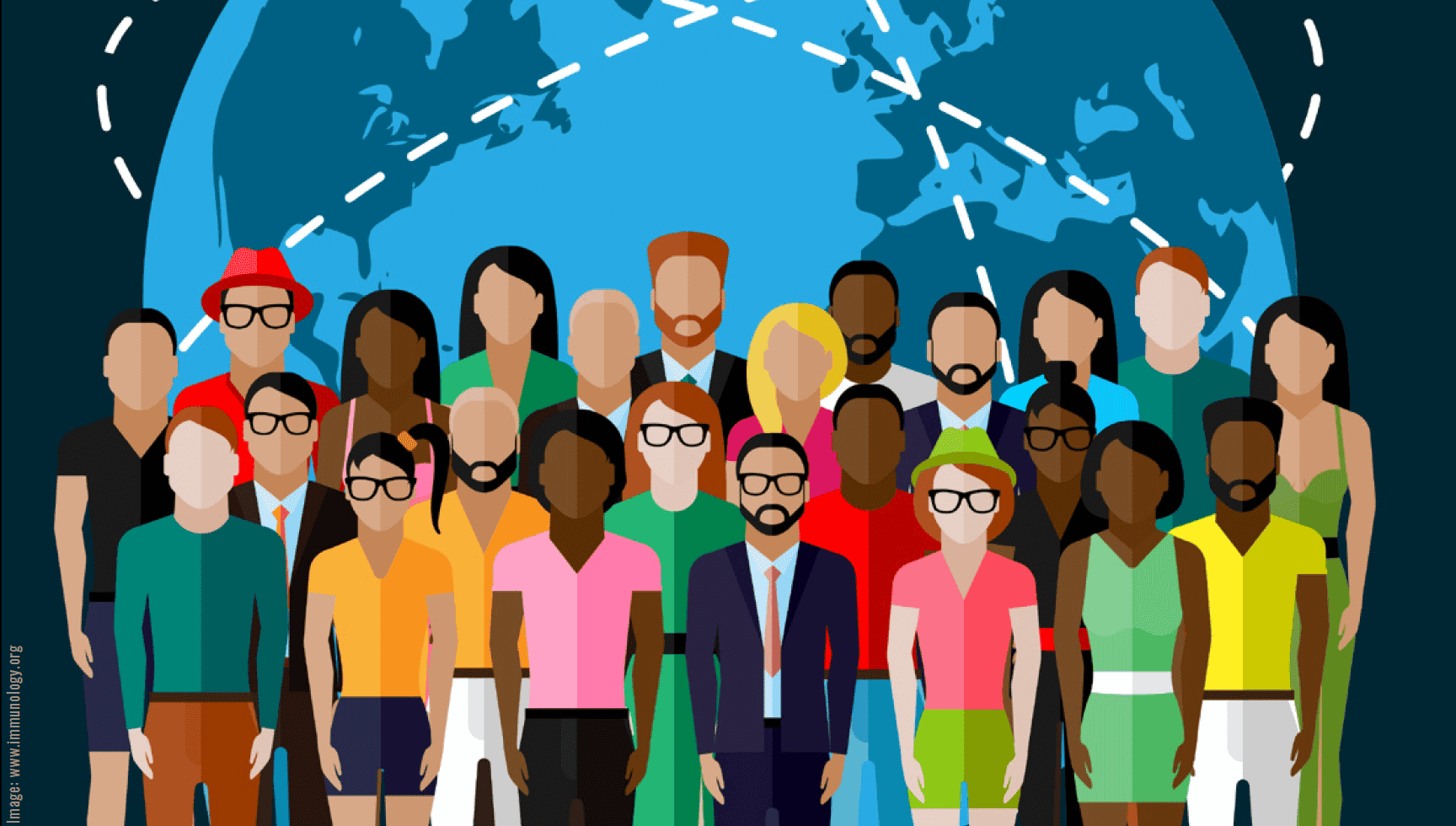
We are living in a world that seems to be aimless. The question we ask ourselves is: what happens to us as a society that with so much science, so much technology and generations and generations of applications, the society we are creating doesn’t give the satisfied life that it was supposed to be. If we start to analyze the history of humanity, it seemed that the more science and technology we had, we would reach paradise and it hasn’t been like that. We lived in a world where science was done in order to know and the products of that knowledge gave a peaceful life to one part of society and the other part seemed to be fine. At what point did science leave this path? Science left this path when the surplus of its applications was already sought and the power of human beings was sharpened. Today we have trade that is produced in different places and at the lowest cost and is distributed from the closest point. Needs are generated to carry out more trade, which has created an imbalance in resources: there’s the problem of nonrenewable resources and those that are generated and made necessary through marketing.
Nowadays we have a pandemic that mutates and mutates and another pandemic whose virus is the power in the rulers, power in wealth, power through education to maintain populism and dictatorships. The foregoing has given us a world that needs a clear path for a life of the planet and of the human beings that live on it. “…should the curriculum be designed in permanent concert with socio-economic needs? or on the contrary, should (sic) conform to the challenges that society poses?… (Moreno Flores, 2021, p. 3) The education that is the basis of growth for the wellbeing of human beings is oriented to support populism and dictatorships: the life of human beings and the planet are not on the agenda. When it is said that Finland has the best results in the tests that are done to measure the knowledge of its students, it is forgotten what the country does or what it has in its educational system that gives those results. What the country does is let students choose the knowledge that the programs determine, but at the level at which they feel capable of achieving that knowledge. Yes, they have to do a program but they choose the subjects within the cycle at the level that they feel capable of obtaining the knowledge. We know that education is based worldwide as mass education: these are the levels and students must take them in this cycle. The optional subjects appear but in any case, from the set of such, these options must be taken from this cycle. Education became massive after World War II because rapid industrialization had to be generated.
Nowadays it’s necessary and forced to remove education from being a weapon for the support of populism and dictatorships. To do the above, education must be thought for society, to generate the quality of life that human beings claim. To develop a science for society and not for commerce, we have to stop students attending programs designed for banking education where the student only keeps the information that is convenient for governments to stay in power. Education for society asks, demands, that there be objectives that allow the social results for which what is learned is learned. Don’t stay in the quantification and yes build the result for your community, for your country and for the world.
Students are so domesticated in banking education that when they are asked for solutions for their community, for their country and for the world they say: why so many things and they bother themselves. The United Nations Educational, Scientific and Cultural Organization (UNESCO) are conducting studies to determine what we need to have in education by 2050. Through the International Institute for Higher Education in Latin America, work is being done on the needs that Higher Education must satisfy. These results were published in May 2021. UNESCO. Think beyond limits. Perspectives on the Futures of Higher Education to 2050. May 25, 2021. https://www.iesalc.unesco. org/2021/05/26/informe-sobre-elfuturo- de-la-educacion-superiorpreve- respuestas-colectivas-y-holisticas- a-los-retos- mundiales/ UNESCO works and results in the following proposal embodied in the document: Roads Towards 2050 and Beyond.https:// www.iesalc.unesco.org/wp-content/ uploads/2021/11/Pathways-to- 2050-and-beyond_ESP-1.pdf The document sets out the following objectives:
1. Quality of life. Access to education must be expanded. 2. Social change. An economic, socio-political and cultural transformation must be made. 3. Take care of the environment. Caring for the environment, which is the place that makes life possible for us. 4. Development of technology. A relationship must be created between technology and education. Remember that by 2050 the world population will be digitally literate. What should be clear to us is that everything that happens in the world we live in is the product of an education based on the repetition of concepts. Before this use of education, political power was achieved through arms; today through education. All the problems we have with the Covid-19 pandemic come from the meaning that the vast majority of world citizens have given to it due to the scant capacity for reasoning and knowledge originating from a banking education. There is technology but the vast majority of human beings are only attentive to social networks. Through them, marketing is managed.
It has cost for the rulers and citizens dearly the management of education as a means of populism or dictatorship and now those who have power, whatever it may be, seek new ways to manipulate with more lies or by force suppressing the rights humans. We are facing a new order in our world. We have to think that: only the education in which we seek the truth of scientific thinking together with the why —in our community, in our country and in the world— is what will save us from everything we are living today. Analyze your atlantic International University holistic program and finish your work with solutions for your community, for your country and for the world. Also read some of the books that are offered in the seminars so that you know in which world you live. The professions are worked in a society. Find out in which society you will develop your knowledge. Let us work for education for society and achieve the well-being we all need.
BIBLIOGRAPHY. Moreno Flores, J. 2021. El diseño curricular como puente entre universidad y sociedad. Madrid: Paraninfo. • UNESCO. Caminos hacia 2050 y más allá. Retrieved from: https://www.iesalc.unesco.org/wp-content/ uploads/2021/11/Pathways-to-2050-and-beyond_ESP-1.pdf • UNESCO. Pensar más allá de los límites. Perspectivas sobre los futuros de la educación superior hasta 2050–25 de mayo de 2021. Retrieved from: https://www.iesalc.unesco. org/2021/05/26/informe-sobre-el-futuro-de-la-educacion-superior-preve-respuestas-colectivas-y-holisticas-a-los-retos-mundiales/
Learning
Scientific papers in English
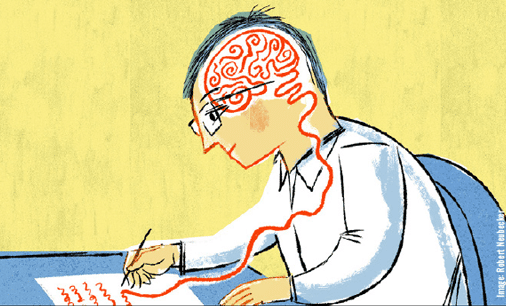
I grew up in China and was still developing my English skills, so I was nervous when I emailed my Ph.D. supervisor the first draft of a manuscript. One week later, he sent it back full of changes. At first, I was frustrated … But after I took a closer look, I realized where I’d gone astray. He had shortened many of my sentences and commented that I should avoid unnecessarily long and complicated phrases. The advice was counter to what I’d learned when studying for English language proficiency exams. Showing off complex grammar and advanced vocabulary had always brought higher scores, so that’s how I approached writing. But I clearly had more lessons left to learn. … At first, I sometimes sat at my computer all day and only ended up with 200 words of text. I couldn’t tell whether my writing was any good. Every time I composed a sentence, I imagined someone laughing at it. One day I’d had enough of writing the same sentence over and over. I decided to write the first draft of a manuscript as quickly as possible. That’s when something magical happened: The sentences seemed to flow out of me, and in a few hours I had a rough draft. I had to go back and edit my work later, but it was a relief to have text to work with —and to know that my draft could only get better. … I now think through my simplified message before I start to write. I also … Read full text:
Coppersmiths
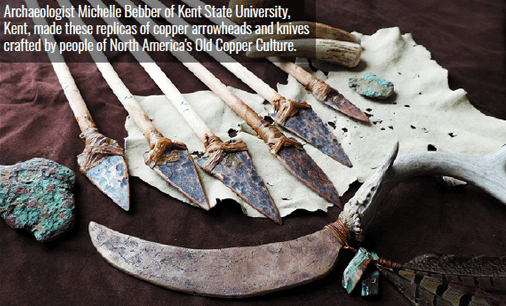
About 8500 years ago, hunter-gatherers living beside Eagle Lake in Wisconsin hammered out a conical, 10-cmlong projectile point made of pure copper. The finely crafted point, used to hunt big game, highlights a New World technological triumph —and a puzzle. A new study of that artifact and other traces of prehistoric mining concludes that what is known as the Old Copper Culture emerged, then mysteriously faded, far earlier than once thought. The dates show that early Native Americans were among the first people in the world to mine metal and fashion it into tools. They also suggest a regional climate shift might help explain why, after thousands of years, the pioneering metallurgists abruptly stopped making most copper tools and largely returned to stone and bone implements. Earth’s largest and purest copper deposits are found around North America’s Great Lakes. At some point, Native Americans learned to harvest the ore and heat, hammer, and grind it into tools. They left behind thousands of mines and countless copper artifacts, including lethal projectile points, hefty knives and axes, and petite fish hooks and awls. Today, it’s not uncommon to meet residents of the region “who have buckets of copper artifacts [that they’ve found] tucked away in their basements,” says David Pompeani, a geologist at Kansas State University … Read full text:
AIU makes a huge contribution to the world by giving new scient ifics the space for original investigations and research. Visit MyAIU Evolution
Changes in the brain
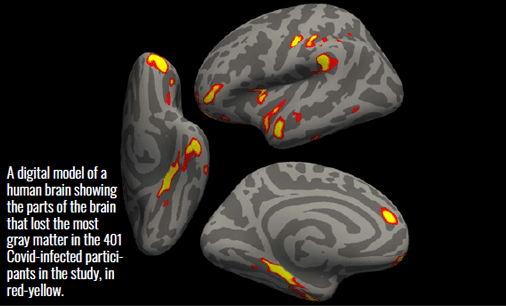
Covid-19 may cause greater loss of gray matter and tissue damage in the brain than naturally occurs in people who have not been infected with the virus, a large new study found. The study, published March 7 in the journal Nature, is believed to be the first involving people who underwent brain scans both before they contracted Covid and months after. Neurological experts who were not involved in the research said it was valuable and unique, but they cautioned that the implications of the changes were unclear and did not necessarily suggest that people might have lasting damage or that the changes might profoundly affect thinking, memory or other functions. The study, involving people aged 51 to 81, found shrinkage and tissue damage primarily in brain areas related to sense of smell; some of those areas are also involved in other brain functions, the researchers said. With normal aging, people lose a tiny fraction of gray matter each year. For example, in regions related to memory, the typical annual loss is between 0.2 percent and 0.3 percent, the researchers said. But Covid patients in the study — who underwent their second brain scan an average of four and a half months after their infection— lost more than noninfected participants, experiencing between 0.2 percent and 2 percent additional gray matter loss in different brain regions over the three years between scans. They also lost more overall brain volume and showed more tissue damage in certain areas. …
Read full text:
Astronomy
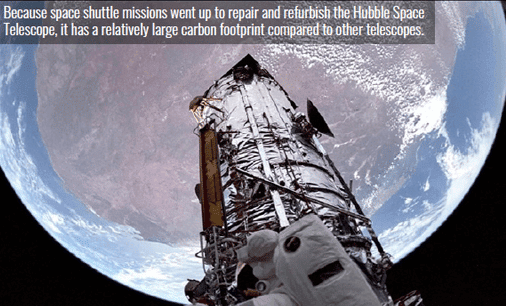
Astronomers spend their careers looking up at the sky, away from Earth, but now some stargazers say their field has to grapple with the fact that observing the cosmos is contributing to their home planet’s climate emergency. A new estimate of the greenhouse gas emissions linked to all ground- and spacebased telescopes, in the journal Nature Astronomy, says the annual carbon footprint of astronomy’s research infrastructure is equivalent to about 20 million metric tons of carbon dioxide. “Just to give you some perspective —20 million tonnes of CO2— this is the annual carbon footprint of countries like Estonia, Croatia, or Bulgaria,” says Jürgen Knödlseder, an astronomer at IRAP, an astrophysics laboratory in France. He and IRAP colleagues including Annie Hughes and Luigi Tibaldo got the idea to do this study while making an estimate of the greenhouse gas emissions from their own institute. “The only missing piece of our assessment was the footprint of the observational data,” says Knödlseder, whose own research, for example, has relied on observations made with the Fermi Gamma-ray Space Telescope. … By dividing up the total annual emissions by the number of astronomers worldwide, the researchers figure that each astronomer’s share of the profession’s emissions is around 36 metric tons per year. … Read full text
Get a better knowledge about our rights and the way we can use them on a daily basis to prevent any abuse or limitations of them. Visit MyAIU Human Rights.
Moto knee
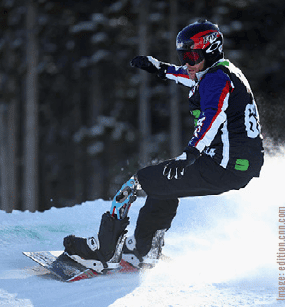
In 2008, when Mike Schultz found his prosthetic leg wasn’t strong enough for him to continue competing in snowmobile racing, he went away and designed his own. This year the defending Winter Paralympic snowboard cross champion wants to help as many other adaptive athletes as he can as he looks to his next stage of life. “I’m ready to turn the page,” he says. “The last two years have meant a lot of sacrifice for our family. It’s cool I can create the tools that bridge the gap to what was once deemed impossible.”… Mike is the founder of BioDapt Inc, a prosthetics business, and he won the silver medal in the men’s snowboard cross SB-LL1 event at the 2022 Winter Paralympics held in Beijing, China. … Read full text:
Diébédo Francis Kéré
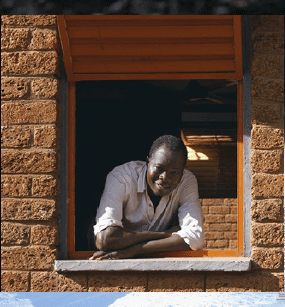
For many architects, being distinguished with awards is a mandatory stepping stone to more prestigious commissions. And there’s no bigger award than the annual Pritzker Architecture Prize. It was announced today [March 15] that the 2022 Pritzker Prize was awarded to the 56-year-old architect, Diébédo Francis Kéré. With this prize, the Burkina Faso-born architect will receive $100,000 and a bronze medallion. But more significantly, perhaps, is that his name will now be included in the same echelon as past Pritzker winners: Philip Johnson, James Stirling, Rem Koolhaas, Zaha Hadid, Oscar Niemeyer, I.M. Pei, Norman Foster, and Tadao Ando, to name a few. Since its founding in 1979, the Pritzker has generally been awarded to familiar celebrity “starchitects.” In recent years, the jury of experts have refocused their gaze on lesser-known practices around the world, socially conscious firms championing design as a catalyst for the greater good. … Read full text: Read full text
Chute 9

On farms, properties, and stations across Australia, you’ll find women riding horses, mustering cattle, fixing fences and harvesting crops. But why are most of them wearing jeans made for men? It’s a question that’s been at the back of Claudia Fox’s mind for almost a decade. … Fed up with the options for women, it was an accident that finally prompted Ms Fox to create her own jeans label. … ensuring she met the two criteria women wanted in a pair of jeans: consistency of sizing and of quality. … In July 2020, Claudia put the first 120 pairs of CHUTE 9 jeans online for sale. The reaction from country women was resounding, and the collection sold out within the month. … Read full text
Live a better life learning how to keep your body, mind and soul balanced. Visit regularly MyAIU Body / MyAIU Mind / MyAIU Spirit and MyAIU Energy.
Resistant starch

Resistant starch is a type of carbohydrate that doesn’t get digested in your small intestine. Instead, it ferments in your large intestine and feeds beneficial gut bacteria. This type of starch provides numerous health benefits and has fewer calories than regular starch. … Type 1. Found in partially milled seeds and grains, as well as in some dense starchy foods. This type is stuck within fibrous cell walls. So it’s not digested. Type 2. Found in starchy foods like raw bananas and potatoes. Indigestible because they are compact, which makes it hard for digestive enzymes to break them down. Type 3. The most resistant. Found in foods that have been cooked and cooled, such as bread and cornflakes. The process of cooling turns some of the starches into resistant starches. Type 4. This type of starch is man-made and is usually found in bread and cakes. Some benefits of resistant starch are: 1. Boosts gut health • 2. Keeps your colon healthy • 3. Encourages high levels of insulin sensitivity • 4. Lowers risks for certain conditions • 5. Encourages weight loss. Some foods high in resistant starch are: Rice or potatoes that have been cooked and cooled • Whole grains such as barley and oats • Plantains • Green bananas (not yellow or ripe bananas, which have regular starch). … Read full text:
Executive disfunction
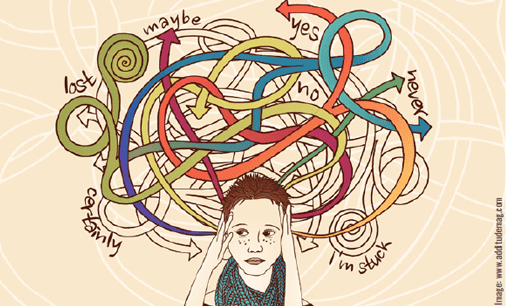
Executive function describes a set of cognitive processes and mental skills that help an individual plan, monitor, and successfully execute their goals. The “executive functions,” as they’re known, include attentional control, working memory, inhibition, and problem-solving, many of which are thought to originate in the brain’s prefrontal cortex. … Many experts believe that the human mind contains seven different executive functions: self-awareness, inhibition, nonverbal working memory (shortterm memory related to sensory and spatial information), verbal working memory (short-term memory related to speech and language), emotional regulation, motivational regulation, and planning and problem-solving. Someone who struggles with executive functioning will likely have trouble starting or finishing tasks, executing multiple steps of a project in sequence, and keeping their belongings organized. They may struggle to make decisions or lose important items frequently. Issues with impulse or emotional control are a less obvious sign of an executive functioning deficit. … Executive dysfunction —sometimes called executive function disorder, or EFD— may appear similar to ADHD; indeed, some experts posit that ADHD is itself a disorder of executive function. People with ADHD —especially children— … Read full text:
Find Open Courses and a world of learning granted by AIU at courses.aiu.edu Help others study and change their lives. Visit MyAIU Pledge.
The Great Green Wall
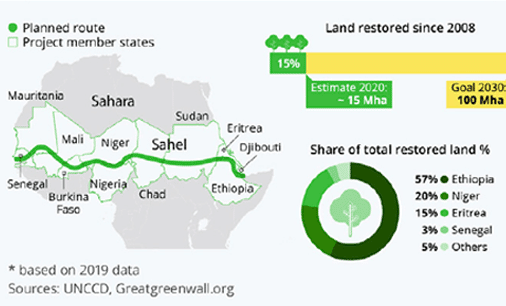
Started in 2008, the Great Green Wall is a monumental initiative to regenerate the semi-arid northern Sahel region to prevent the Sahara from spreading southwards. The idea is to plant millions of trees on a strip of land about 8,000km long and 15km wide crossing the African continent from Senegal to Djibouti. To give an idea of the scale of the project, the planned route is almost as long as the distance between Paris and Beijing (8,200km). In addition to the goal of restoring 100 million hectares of degraded land by 2030, the Great Green Wall aims to capture 250 million tonnes of carbon. It will also improve food security and create millions of jobs in the affected regions. At present, this ambitious project is only about 15 percent complete, according to the latest estimates. But some $20 billion has recently been pledged at international level to push it forward and hopefully reach the target in eight years. Eleven countries in the Sahel belt are involved in this ecological restoration project. However, only a handful have made significant contributions in the decade since launch. As detailed in our infographic, over the period 2008-2019, Ethiopia accounted for more than half of the restored land in the project’s area of focus, followed by Niger (20 percent), Eritrea (15 percent) and Senegal (3 percent). … Statista offers daily infographics about trending topics such as Economy & Finance, Politics & Society, Tech & Media, Health & Environment, Consumer, Sports …
Read full text:
Rethink geotagging
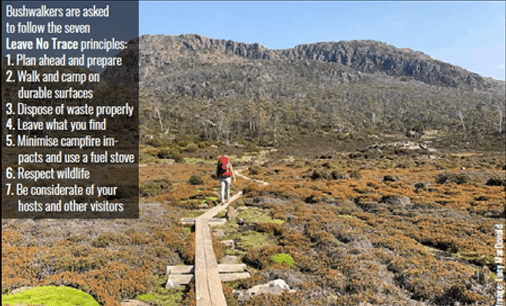
Social media has exposed the wider world to remote and beautiful wilderness once only seen in coffee table books, at slide nights or by the eyes of an adventurous few. So while the instagrammable aesthetics of these locations inspire more people to head out into Tasmania’s wild areas, their newfound popularity is coming at a price. “In a nature perspective it makes locations that were not as well known much more known and visited,” said Mark Williams, a lecturer in physical geography and spatial science at the University of Tasmania. “More people are out in nature experiencing the mental and physical benefits, but some places are becoming degraded as more and more people visit these fragile sites.” He pointed to Wellington Park’s Disappearing Tarn, which was once only known through local knowledge, and Lake Rhona in the south-west, which became popular via social media but started having issues with toilet paper litter. “When you’re sharing your photographs from your trips, it’s fine to share them, but think about sharing some of the more sensitive locations with just small groups of people rather than your entire network. “Consider stripping the geotag from some of the photographs of particularly sensitive areas.” … Read full text:
Find support for your own unique art and design projects, or support other creative projects at MyAIU Research
Spanking
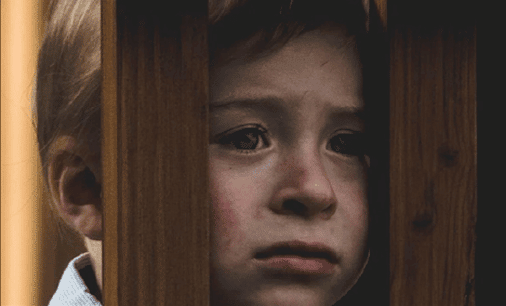
Parents in Wales can no longer spank, slap, hit or shake kids, according to a new law outlawing all physical punishments for children. According to The Guardian, corporal punishment had been included as “reasonable punishment” in England and Wales since Victorian times, but that defense no longer applies. “Until now, children were the only group in our society who it was acceptable to strike in certain circumstances,” Viv Laing, the policy and public affairs manager at the National Society for the Prevention of Cruelty to Children (NSPCC) Cymru Wales, told The Guardian. “We don’t allow the physical punishment of adults or animals, so it is absurd that we have for so long with children.” But not everyone is happy with the law. Some conservatives expressed concern that the law would lead to a “Stasi culture” in which citizens become informants and turn in their neighbors to law enforcement for parenting choices. But Deputy Minister for Social Services Julie Morgan rejected the notion. “We don’t want people spying,” she said, before adding, “Looking after children is the responsibility of the whole community.” The law, which applies to both residents of and visitors to Wales, is being hailed as “historic” by the Welsh government. But Wales is hardly the first country to outlaw corporal punishment. In 1979, Sweden became the first nation to make striking a child …
Read full text:
Greenland shark
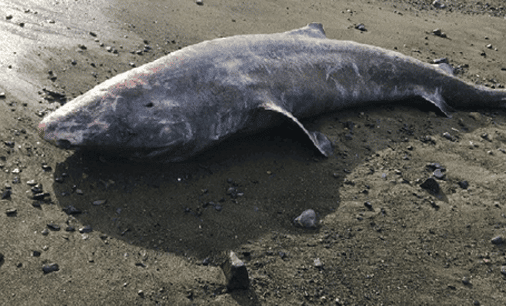
Find Open Courses and a world of learning granted by AIU at courses.aiu.edu Help others study and change their lives. Visit MyAIU Pledge.
Campus
The Techno-Fix won’t save us

We call this “the lie of the techno-fix.” The lie of the techno-fix is extremely convincing, with good reason. The propaganda promoting this idea is incessant and nearly subliminal, with billions of dollars pouring out of non-profit offices, New York PR firms, and Hollywood production companies annually to inculcate young people into the cult of technology. In policy, technology is rarely (if ever) subjected to any democratic controls; if it can be profitably made, it will be. And damn the consequences. There is money to be made.
Critics of technology and the techno-elite, such as Lewis Mumford, Rachel Carson, Langdon Winner, Derrick Jensen, and many others, have spoken out for decades on these issues. Technological “development,” they warn us, is perhaps better understood as technological “escalation,” since modern industrial technologies typically represent a war on the planet and the poor. … The most recent topic explored by the thinkers and activists who make up the Great Transition Network was “Technology and the Future”. As writer after writer posted their thoughts, it was heartening to see that almost all recognize that technology cannot provide real solutions to the many crises we face. I was also happy that Professor William Robinson, author of a number of books on the global economy, highlighted the clear connection between computer technologies and the further entrenchment of globalization today. As anyone who has followed my work will know, globalization is of particular interest to me: for more than 40 years I’ve been studying its impacts on different cultures and societies around the world. From Ladakh and Bhutan to Sweden and Australia, a clear pattern has emerged: as people are pushed into deepening dependence on large-scale, technological systems, ecological and social crises escalate.
I’m not the only one to have seen this. In the International Forum on Globalization —a network I co-founded in 1992— I worked with forty writers, journalists, academics and social and environmental leaders from around the world to inform the public about the ways in which “free-trade” treaties, the principal drivers of globalization, have eroded democracy, destroyed livelihoods, and accelerated resource extraction. In countries as disparate as Sweden and India, I have seen how globalization intensifies competition for jobs and resources, leading to dramatic social breakdown —including not only ethnic and religious conflict, but also depression, alcoholism and suicide. Techno-Fix Failure Professor Robinson wrote that we are “at the brink of another round of restructuring and transformation based on a much more advanced digitalization of entire global economy”. This is true, but the link between globalization and technological expansion began well before the computer era. Large-scale, technological apparatuses can be understood as the arms and legs of centralized profit-making. And while 5G networks, satellites, mass dataharvesting, artificial intelligence and virtual reality will allow the colonization of still more physical, economic and mental space by multinational corporations, technologies like fossil fuels, global trading infrastructures, and television have already helped to impose a corporate-run consumer-based economy in almost every corner of the globe.
For reasons that are increasingly evident, an acceleration of this process is the last thing we need in a time of serious social and environmental crises. What’s more, the technologies themselves —from the sensors to the satellites— all rely heavily on scarce resources, not least rare earth minerals. Some of the world’s richest corporations are now racing each other to extract these minerals from the deepest seabeds and from the surface of Mars. It has been estimated that the internet alone —with its largely invisible data warehouses (much of it manned by exploited labor in the “developing” world)— will use up a fifth of global electricity consumption by 2025.
Terminating Tradition And for what? So that we can all spend more time immersed in and addicted to virtual worlds? So that we can automate agriculture, and drive more communities off the land into swelling urban slums? So that drones can deliver our online purchases without an iota of face-to-face contact? When thinking about technology from within an already high-tech, urban context, we can easily forget that nearly half the global population still lives in villages, still connected to the land. This is not to say that their way of life is not under threat — far from it. Ladakh, the Himalayan region where I lived and worked for several decades, was unconnected to the outside world by even a road until the 1960s. But today you can find processed corporate food, smartphones, mountains of plastic waste, traffic jams and other signs of ‘modernity’ in the capital, Leh. The first steps on this path were taken in the mid-1970s when, in the name of ‘development’, massive resources went into building up the energy, communications and transport infrastructures needed to tie Ladakh to the global economy. Another step involved pulling Ladakhi children out of their villages into western-style schools, where they learned none of the place-based skills that supported Ladakh’s culture for centuries, and instead were trained into the technological- modernist paradigm. Together, these forces are pushing the traditional way of life to the brink of extinction. While that process began relatively recently in Ladakh, in the west it has been going on far longer, with deeper impacts. But even here, more and more people are becoming aware that the technologization of their personal lives has led to increasing stress, isolation, and mental health struggles. During the pandemic people have been forced to do more online than ever before —from classes to conversations with friends and family— and most have discovered how limited and empty online life can be. There is a clear cultural turning, visible now even in the mainstream, that goes beyond a desire to spend less time on screens. People are also beginning to reject the posturing of the consumer culture and its work-and-spend treadmill, wanting instead to slow down, to cultivate deeper relationships and to engage in more community-oriented and nature-based activities.
Returning Ecology I see young people all over the world choosing to leave their screen-based jobs to become farmers. (This return to the land is happening in Ladakh, as well, which I find truly inspiring.) Informal networks of mutual aid are arising. Friends are gardening, cooking and baking bread together; families are choosing to live on the land and developing relationships with the animals and plants around them. We are seeing increased respect for indigenous wisdom, for women and for the feminine, and a growing appreciation for wild nature and for all things vernacular, handmade, artisanal and local. There is also an emergence of alternative, ecological practices in every discipline: from natural medicine to natural building, from eco-psychology to ecological agriculture. Although these disciplines have often been the target of corporate co-optation and greenwashing, they have invariably emerged from bottom-up efforts to restore a healthier relationship with the Earth.
All of these are positive, meaningful trends that have been largely ignored by the media, and given no support by policymakers. At the moment, they are running uphill in a system that favors corporateled technological development at every turn. They testify to enduring goodwill, to a deep human desire for connection. When viewed from a big-picture perspective, the expansion of digital technologies —which are inherently centralized and centralizing— runs contrary to the emergence of a more humane, sustainable and genuinely connected future. Why should we accept an energy-and mineral-intensive technological infrastructure that is fundamentally about speeding life up, increasing our screentime, automating our jobs, and tightening the grip of the 1%? For a better future, we need to put technology back in its place, and favor democratically determined, diverse forms of development that are shaped by human and ecological priorities —not by the gimmicky fetishes of a handful of billionaires.
Read full text by Helena Norberg-Hodge:
Help others study and change their lives. Visit MyAIU Pledge. Learn how to have a better financial control. Visit MyAIU Money.
OOkkie.

The world’s first 4 in 1 skateboard that revolutionises the way we get children into skateboarding. Getting on a board sooner and building key core skills, whilst making the process a safe and enjoyable experience. www.ookkie.org
Bamboo nesting bowls.

The seven piece set is fabulous for everyday use and the colors will make anyone’s kitchen pop. It includes sizes to suit any of your kitchen or hosting needs. www.thegrommet.com
Spinnerette turntable.

The retro-vibe Third Man Records Spinnerette Turntable features a belt-driven turntable and dynamic full-range speaker that are revealed when the Spinnerette carrying case is opened. Great for vinyl beginners, the Spinnerette is powered by an AC power adapter (included), has an Audio-Technica diamond-stylus needle and plays 33 ⅓, 45 and 78rpm records. store.moma.org
Anaïs Nin (1903–1977).
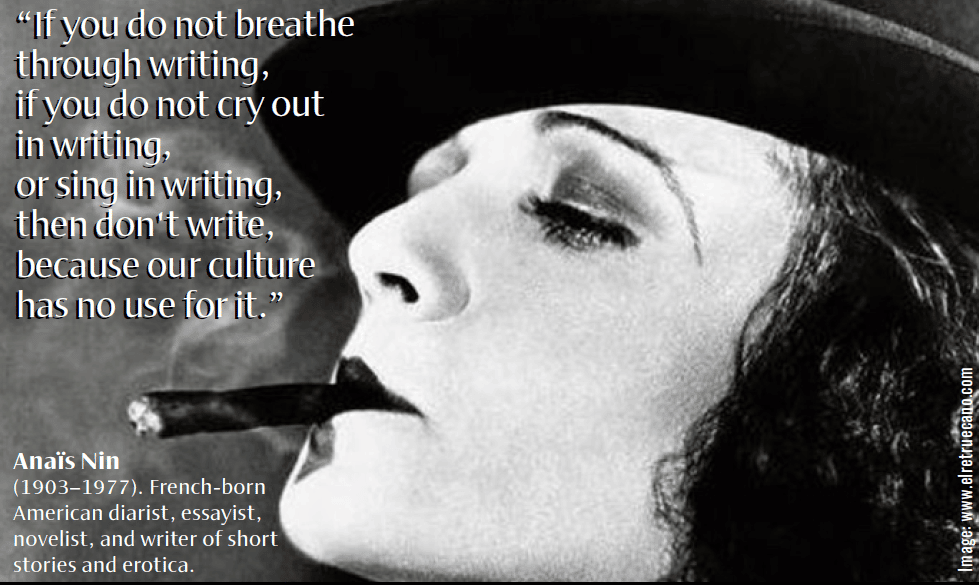
In 2008, when Mike Schultz found his prosthetic leg wasn’t strong enough for him to continue competing in snowmobile racing, he went away and designed his own. This year the defending Winter Paralympic snowboard cross champion wants to help as many other adaptive athletes as he can as he looks to his next stage of life. “I’m ready to turn the page,” he says. “The last two years have meant a lot of sacrifice for our family. It’s cool I can create the tools that bridge the gap to what was once deemed impossible.”… Mike is the founder of BioDapt Inc, a prosthetics business, and he won the silver medal in the men’s snowboard cross SB-LL1 event at the 2022 Winter Paralympics held in Beijing, China. … Read full text:
Good Advice
22. TRUST YOUR INSTINCTS
What good is intuition if you let second-guessing drown it out? The worst enemy of success is self-doubt. Source: www.inc.com
Bachelor's of American History
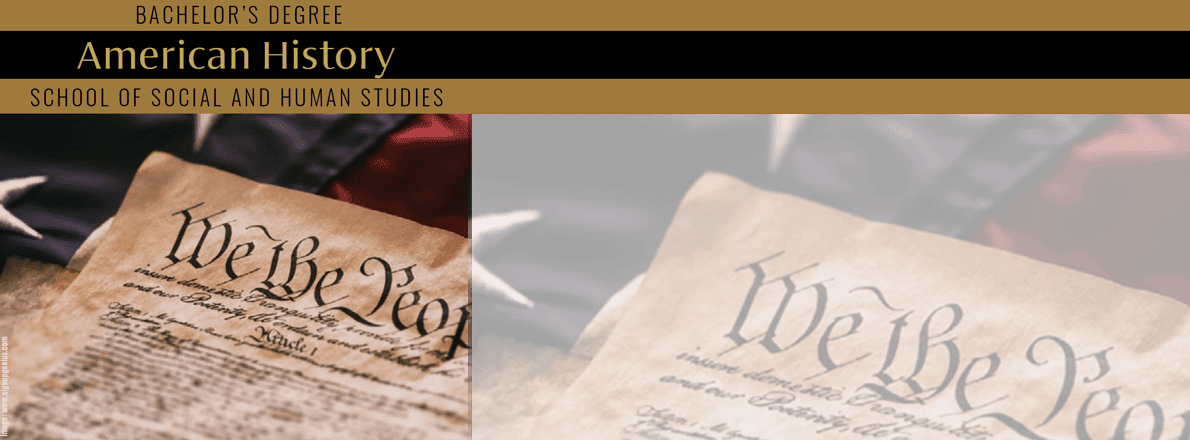
The Bachelor of American History (BA) program objective is to provide students with a rich and complex understanding of U.S. history, society and cultures of the past and present; focusing on literature, social science or history. The degree prepares students for opportunities in business, politics, law, education, government, journalism and other related careers. The Bachelor of American History (BA) program is offered online via distance learning. After evaluating both academic record and life experience, AIU staff working in conjunction with Faculty and Academic Advisors will assist students in setting up a custom-made program, designed on an individual basis. This flexibility to meet student needs is seldom found in other distance learning programs. Our online program does not require all students to take the same subjects/ courses, use the same books, or learning materials. Instead, the online Bachelor of American History (BA) curriculum is designed individually by the student and academic advisor. It specifically addresses strengths and weaknesses with respect to market opportunities in the student’s major and intended field of work. Understanding that industry and geographic factors should influence the content of the curriculum instead of a standardized one-fits-all design is the hallmark of AIU’s unique approach to adult education. This philosophy addresses the dynamic and constantly changing environment of working professionals by helping adult students in reaching their professional and personal goals within the scope of the degree program.
Important:
Below is an example of the topics or areas you may develop and work on during your studies. By no means is it a complete or required list as AIU programs do not follow a standardized curriculum. It is meant solely as a reference point and example. Want to learn more about the curriculum design at AIU? Go ahead and visit our website, especially the Course and Curriculum section: https://wp24.aiu.edu/CourseCurriculum.html
Communication & Investigation (Comprehensive Resume)
Organization Theory (Portfolio)
Experiential Learning (Autobiography)
Seminar Administrative Development (Book Summary)
Seminar Cultural Development (Practical Experience)
Seminar International Development (Publications)
Colonial America
Early National United States
Civil War and Reconstruction
Emergence of Modern America
Industrialization
Recent America
Vietnam War
The American West
American Foreign Policy
Arkansas and the Southwest
American Constitutional
Development
History of American Labor
American Women’s History
Social and Political Thought
Bachelor Thesis Project
MBM300 Thesis Proposal
MBM302 Bachelor Thesis (5,000 words)
Employment
Teacher • Archival Manager
Librarian • Records Manager
Writer • Journalist • Paralegal
aiu.edu/apply-online.html
Pioneer Plaza/900 Fort Street Mall 410
Honolulu, HI 96813
800-993-0066 (Toll Free in US)
808-924-9567 (Internationally)
Each Bachelor graduate is encouraged to publish their research papers either online in the public domain or through professional journals and periodicals worldwide.
Contact us to get started
Each graduate is encouraged to publish their research papers either online in the public domain or through professional journals and periodicals worldwide
aiu.edu/apply-online.html
Pioneer Plaza/900 Fort Street Mall 410
Honolulu, HI 96813
800-993-0066 (Toll Free in US)
808-924-9567 (Internationally)
About Us

Accreditation
Atlantic International University offers distance learning degree programs for adult learners at bachelors, masters, and doctoral level. With self paced program taken online, AIU lifts the obstacles that keep professional adults from completing their educational goals. Programs are available throughout a wide range of majors and areas of study. All of this with a philosophically holistic approach towards education fitting within the balance of your life and acknowledging the key role each individual can play in their community, country, and the world.
Atlantic International University is accredited by the Accreditation Service for International Schools, Colleges and Universities (ASIC). ASIC Accreditation is an internationally renowned quality standard for colleges and universities. Visit ASIC’s Directory of Accredited Colleges and Universities. ASIC is a member of CHEA International Quality Group (CIQG) in the USA, an approved accreditation body by the Ministerial Department of the Home Office in the UK, and is listed in the International Directory of the Council for Higher Education Accreditation (CHEA). The University is based in the United States and was established by corporate charter in 1998.
Our founding principles are based on the United Nations Universal Declaration of Human Rights; per article 26, AIU believes that Higher Education is a Human Right. The University has implemented a paradigm shifting educational model for its academic programs that have allowed it to move closer to this goal through the self-empowerment of its students, decentralization of the learning process, personalized open curriculum design, a sustainable learning model, developing 11 core elements of the Human Condition within MYAIU, and utilizing the quasi-infinite knowledge through the use of information technology combined with our own capacity to find solutions to all types of global issues, dynamic problems, and those of individuals and multidisciplinary teams. Due to these differentiations and the university’s mission, only a reputable accrediting agency with the vision and plasticity to integrate and adapt its processes around AIU’s proven and successful innovative programs could be selected. Unfortunately, the vast majority of accrediting agencies adhere to and follow obsolete processes and requirements that have outlived their usefulness and are in direct conflict with the university’s mission of offering a unique, dynamic, affordable, quality higher education to the nontraditional student (one who must work, study what he really needs for professional advancement, attend family issues, etc.). We believe that adopting outdated requirements and processes would impose increased financial burdens on students while severely limiting their opportunities to earn their degree and advance in all aspects. Thus, in selecting the ASIC as its accrediting agency, AIU ensured that its unique programs would not be transformed into a copy or clone of those offered by the 10,000+ colleges and universities around the world. Since ASIC is an international accrediting agency based outside the United States, we are required by statute HRS446E to place the following disclaimer: ATLANTIC INTERNATIONAL UNIVERSITY IS NOT ACCREDITED BY AN ACCREDITING AGENCY RECOGNIZED BY THE UNITED STATES SECRETARY OF EDUCATION. Note: In the United States and abroad, many licensing authorities require accredited degrees as the basis for eligibility for licensing.

In some cases, accredited colleges may not accept for transfer courses and degrees completed at unaccredited colleges, and some employers may require an accredited degree as a basis for eligibility for employment. Potential students should consider how the above may affect their interests, AIU respects the unique rules and regulations of each country and does not seek to influence the respective authorities. In the event that a prospective student wishes to carry out any government review or process in regards to his university degree, we recommend that the requirements of such are explored in detail with the relevant authorities by the prospective student as the university does not intervene in such processes. AIU students can be found in over 180 countries, they actively participate and volunteer in their communities as part of their academic program and have allocated thousands of service hours to diverse causes and initiatives. AIU programs follow the standards commonly used by colleges and universities in the United States with regards to the following: academic program structure, degree issued, transcript, and other graduation documents. AIU graduation documents can include an apostille and authentication from the US Department of State to facilitate their use internationally.
The AIU Difference
It is acknowledged that the act of learning is endogenous, (from within), rather than exogenous.
This fact is the underlying rationale for “Distance Learning”, in all of the programs offered by AIU. The combination of the underlying principles of student “self instruction”, (with guidance), collaborative development of curriculum unique to each student, and flexibility of time and place of study, provides the ideal learning environment to satisfy individual needs.
AIU is an institution of experiential learning and nontraditional education at a distance. There are no classrooms and attendance is not required.
The AIU Difference
MISSION:
To be a higher learning institution concerned about generating cultural development alternatives likely to be sustained in order to lead to a more efficient administration of the world village and its environment; exerting human and community rights through diversity with the ultimate goal of the satisfaction and evolution of the world.
VISION :
The empowerment of the individual towards the convergence of the world through a sustainable educational design based on andragogy and omniology.
Organizational Structure
Dr. Franklin Valcin
President/Academic Dean
Dr. Ricardo Gonzalez
Chief Operation Officer
and MKT Director
Dr. Miriam Garibaldi
Viceprovost for Research
Dr. Ofelia Miller
Director of AIU
Juan Pablo Moreno
Director of Operations
Paula Viera
Director of
Intelligence Systems
Felipe Gomez
Design Director / IT Supervisor
Daritza Ysla
IT Coordinator
Nadeem Awan
Chief Programming Officer
Dr. Jack Rosenzweig
Dean of Academic Affairs
Dr. Edward Lambert
Academic Director
Dr. Ariadna Romero
Advisor Coordinator
Nadia Gabaldon
Academic Coordinator
Jhanzaib Awan
Senior Programmer
Leonardo Salas
Human Resource Manager
Benjamin Joseph
IT and Technology Support
Rosie Perez
Finance Coordinator
Chris Soto
Admissions Counselor
Dr. José Mercado
Chief Executive Officer
Chairman of the Board of Trustees
Linda Collazo
Logistics Coordinator
Irina Ivashuk
Alumni Association
Coordinator
Clara Margalef
Director of Special Projects
of AIU
David Jung
Corporate/Legal Counsel
Bruce Kim
Advisor/Consultant
Thomas Kim
Corporate/
Accounting Counsel
Camila Correa
Quality Assurance Coordinator
Maricela Esparza
Administrative Coordinator
Chris Benjamin
IT and Hosting Support
Mayra Bolivar
Accounting Coordinator
Roberto Aldrett
Communications Coordinator
Giovanni Castillo
IT Support
Jaime Rotlewicz
Dean of Admissions
Dr. Mario Rios
Academic Advisor
Michael Phillips
Registrar’s Office
Rene Cordon
Admissions Support
Jenis Garcia
Admissions Counselor
Ricardo González, PhD
Provost
Dr. Silvia Restorff
Academic Advisor
Dr. Prakash Menon
Academic Advisor
Carlos Aponte
Telecommunications
Coordinator
Dr. Nilani Ljunggren De Silva
Academic Advisor
Dr. Scott Wilson
Academic Advisor
Dr. Mohammad Shaidul Islam
Academic Advisor
Dr. Edgar Colon
Academic Advisor
Deborah Rodriguez
Academic Tutor Coordinator
Cyndy Dominguez
Academic Tutor Coordinator
Kinmberly Diaz
Admissions Support Tutor
Amalia Aldrett
Admissions Coordinator
Sandra Garcia
Admissions Coordinator
Jose Neuhaus
Admissions Support
Junko Shimizu
Admissions Coordinator
Veronica Amuz
Admissions Coordinator
Alba Ochoa
Admissions Coordinator
Contact Us
Atlantic International University
900 Fort Street Mall 905 Honolulu, HI 96813
Quick Links
Home | Spanish | Online Courses | Available Courses | Vrtual Campus | Career Center | Available Positions | Ask Career Coach | The Job Interview | Resume Writing | Accreditation | Areas of Study | Bachelor Degree Programs | Masters Degree Programs | Doctoral Degree Programs | Course & Curriculum | Human Rights | Online Library | Representations | Student Publication | Sponsors | General Information | Mission & Vision | School of Business and Economics | School of Science and Engineering | School of Social an Human Studies | Media Center | Admission Requirements | Apply Online | Tuition | Faculty & Staff | Distance Learning Overview | Student Testimonials | Frequently Asked Questions | Register for Program | Privacy Policy | FAQ


